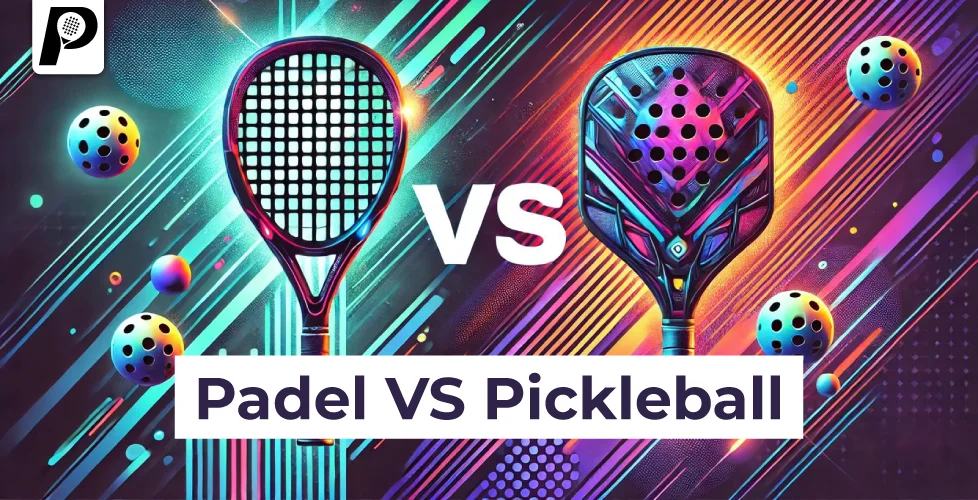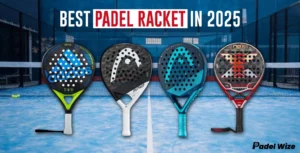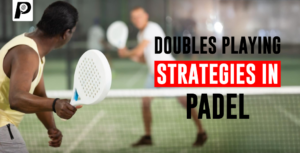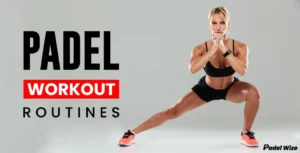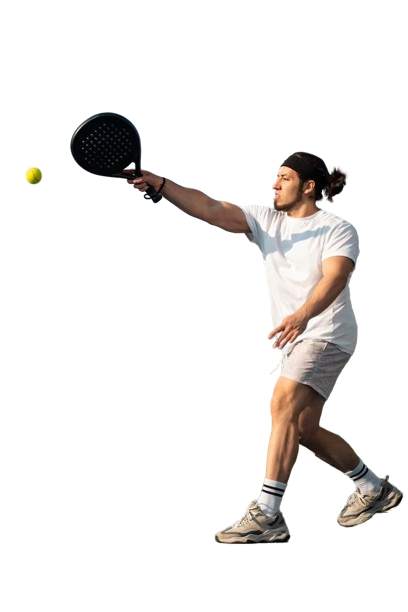In recent years, both Padel vs Pickleball have seen a surge in popularity, attracting enthusiasts from various age groups and fitness levels. While both sports share similarities, such as being racket sports played on smaller courts than tennis, they also offer unique health benefits. This blog will explore the health benefits of Padel vs Pickleball: Health Benefits of Each Sport, helping you decide which one might be the best fit for your fitness goals.
Related blog Padel Tennis vs Pickleball: Equipment, Rules, and Play Styles
What is Padel?
Padel is a racket sport typically played in doubles on an enclosed court slightly smaller than a tennis court. It combines elements of tennis and squash, with players using solid paddles and a ball similar to a tennis ball but with less pressure.
What is Pickleball?
Pickleball is a paddle sport that combines elements of tennis, badminton, and table tennis. It can be played in singles or doubles, on a court that is about one-third the size of a tennis court. Players use a paddle and a perforated plastic ball.
Health Benefits of Padel
Padel, a dynamic racket sport blending elements of tennis and squash, offers a comprehensive workout that benefits both the body and mind. Engaging in padel regularly can significantly enhance cardiovascular health, muscle strength, flexibility, and mental well-being.
Cardiovascular Health
- High-Intensity Intervals: Padel involves short bursts of intense activity followed by brief periods of rest or lower intensity, similar to high-intensity interval training (HIIT). This format improves cardiovascular endurance and promotes heart health.
- Increased Heart Rate: Regular play helps in maintaining a higher heart rate, which strengthens the heart muscle over time.
Muscle Strength and Endurance
- Full-Body Workout: Padel engages multiple muscle groups, including the legs, core, and upper body. The repetitive motions of swinging, lunging, and running improve muscle tone and endurance.
- Core Stability: The rotational movements required for hitting the ball enhance core strength and stability.
Flexibility and Agility
- Quick Reflexes: The enclosed court and fast-paced nature of padel improve reflexes and agility.
- Dynamic Movements: Players frequently change direction and speed, which enhances overall flexibility and coordination.
Mental Health
- Strategic Thinking: Padel requires a combination of strategy and quick decision-making, which can enhance cognitive function.
- Social Interaction: Playing doubles fosters social connections, reducing feelings of loneliness and stress.
Related blog Gear Up for Success: A Guide to Padel Equipment
Health Benefits of Pickleball
Pickleball is not just a fun and engaging sport; it also offers a wide range of health benefits. From improving cardiovascular fitness to enhancing muscle strength and mental well-being, pickleball is an excellent activity for maintaining overall health.
Cardiovascular Health
- Aerobic Exercise: Pickleball provides moderate to vigorous aerobic exercise, improving cardiovascular fitness and reducing the risk of heart disease.
- Sustained Activity: The continuous nature of pickleball helps in maintaining a steady heart rate, beneficial for cardiovascular health.
Muscle Strength and Endurance
- Upper and Lower Body Workout: The sport works various muscle groups, particularly the arms, shoulders, chest, and legs, enhancing overall muscle strength.
- Low Impact: The game is relatively low impact, making it suitable for people of all ages, including seniors, without putting excessive strain on the joints.
Related blog A Comprehensive Guide to Padel Training
Flexibility and Agility
- Lateral Movements: Pickleball involves a lot of side-to-side movements, which improve lateral agility and flexibility.
- Hand-Eye Coordination: The precision required to hit the smaller, lighter ball improves hand-eye coordination and fine motor skills.
Mental Health
- Cognitive Benefits: The fast-paced nature of pickleball helps in improving mental alertness and cognitive functioning.
- Stress Relief: Engaging in regular physical activity releases endorphins, which reduce stress and promote a sense of well-being.
Related blog What is Padel? Exploring the Equipment, Rules, and Strategies
Which Sport is Better for You?
Both padel and pickleball offer numerous health benefits, making them excellent choices for staying active and healthy. Your choice may depend on several factors:
- Fitness Level: If you are looking for a high-intensity workout, padel may be the better option. For a moderate-intensity activity, pickleball is an excellent choice.
- Age and Joint Health: Pickleball’s low-impact nature makes it more suitable for older adults or those with joint concerns.
- Social Interaction: Both sports are social, but padel, often played in doubles, might offer more team interaction.
- Cognitive Benefits: Both sports provide cognitive benefits, though padel’s strategic elements may offer a slight edge in mental engagement.
Related blog A Beginner’s Guide to Following the Pro Padel League
Conclusion
Whether you choose Padel vs Pickleball you are investing in a healthier lifestyle. Both sports provide cardiovascular, muscular, and mental health benefits, making them ideal for people of all ages and fitness levels. Try both to see which one you enjoy more and which aligns better with your health and fitness goals. Remember, the best sport is the one you enjoy and can commit to playing regularly.

